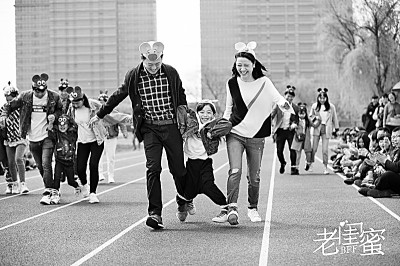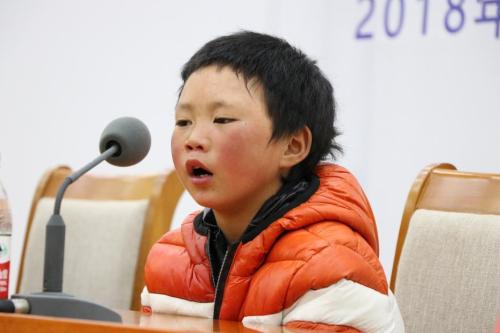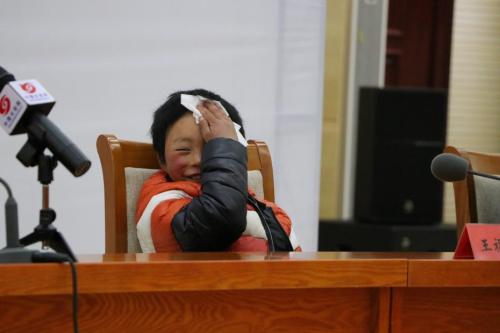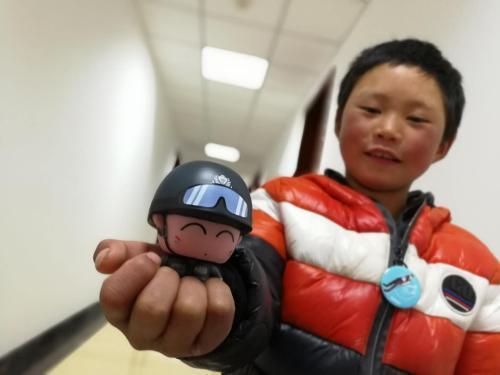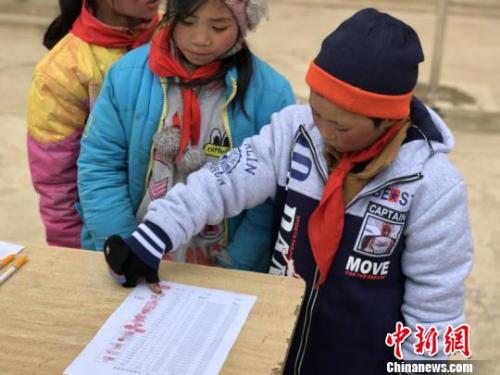Wang Jingbin, a "drug nemesis": Braving gangsters and writing magnificent youth with blood and wisdom

Cctv newsJune 26th, 2017 is the 30th International Anti-Drug Day. Drugs do great harm to individuals, families and society. Anti-drug has become an arduous task facing the world today, and the anti-drug police are even called "people walking on the knife’s edge". They are faced with desperate people who take risks in order to make huge profits. Wang Jingbin, a policeman of the Anti-drug Detachment of Qingdao Public Security Bureau, Shandong Province, is not afraid of life and death, and he is in the forefront. He has fought with cunning and ferocious criminals many times, passed the test of life and death, and wrote magnificent youth with blood and wisdom.
Forgetting one’s life and fighting bravely, the gangster’s youth and blood cast the police soul
"Continuously investigating cases and staging ‘ Speed flying ’ , close combat with gangsters … …” These TV drama plots in the eyes of others are scenes that Wang Jingbin often experiences personally in his work. In his words, the anti-drug police should be able to stand up at critical moments and risk their lives!
On the morning of October 23, 2014, Wang Jingbin successfully arrested the suspect and seized 6 kilograms of ice in the face of a knife-wielding gangster during the arrest operation of the 9.3 project of the target case of the Ministry of Public Security. During the fight, Wang Jingbin was stabbed in the face, chest, hands and buttocks by gangsters who resisted arrest with knives, and was stabbed seven times, successfully cutting off a drug trafficking channel smuggled to South Korea through Qingdao.

Resourceful and calm, it is brave to deal with the clank of iron.
It is gold that shines everywhere. At the end of 2010, Wang Jingbin was transferred to the investigation team by a large team of anti-drug detachment. After several years of hard work, with good physical fitness and rich investigation experience, Wang Jingbin quickly grew into an excellent investigator. He likes this job, and he is more persistent in it. His composure, calmness and wit in the contest with cunning and ferocious criminal suspects make his colleagues sit up and take notice, and he is known as the "dancer at the tip of a knife".
As a young investigator, Wang Jingbin always plays a smart role in case detection. In his eyes, investigating and handling cases requires both courage and wisdom.
In March 2013, in the process of detecting the drug trafficking case of Yue Hongying, the target case of the provincial office, Wang Jingbin was responsible for leading a team to arrest a major suspect in the case. Although it has been found out which community the suspect lives in, it is impossible to determine the specific address. At this time, other suspects have arrived in the case, and if they are not arrested as soon as possible, they are very likely to escape. Careful Wang Jingbin took it into his mind. He found that the number of the suspect’s mobile phone number was a four-digit serial number. So he picked up his mobile phone and dialed it to the suspect. He calmly asked with a Qingdao local accent: "Hello, do you sell your mobile phone number?" I want to buy your mobile phone number … …” Half an hour later, when the suspect was happily preparing to go out and trade his mobile phone number, Wang Jingbin and his colleagues, who had been waiting for a long time, fell to the ground and were caught on the spot, fighting a clean and beautiful ambush.
Study hard, practice hard, contribute silently, write loyalty without regrets.
In 2008, before Wang Jingbin was transferred to the anti-drug detachment from the Air Police Corps of the Public Security Bureau of the Civil Aviation Administration of China, he had worked in various posts such as police stations and sub-bureaus. However, after spending several years with colleagues on the anti-drug front, he often told others: "Anti-drug work is my favorite. Although this job is full of danger, tension and busyness, as long as I can handcuff drug dealers myself in the end, I feel that it is worthwhile to pay more!"
Just transferred to the Anti-drug Detachment of Qingdao Public Security Bureau, Wang Jingbin did not adapt to such a strange unit and strange job, but at the age of 33, he quickly integrated into this big family with his love for public security work and enthusiasm for work. He studied business skills with the old police during the day, and he didn’t go home at night to study legal knowledge at the unit. He often studied late at night. He always carries with him pamphlets of laws and regulations such as the Anti-Drug Law, the Criminal Procedure Law, the Provisions on Drug Abuse Detection Procedures, and the Regulations on the Administration of Precursor Chemicals, and reads them when he has time. After half a year, Wang Jingbin has become the business backbone of the unit, and he can always answer the inquiries between colleagues and the instructions from lower departments accurately and with ease. Every year, the anti-drug detachment organizes the large-scale anti-drug publicity activities of "6.26 International Anti-Drug Day". Every year, Wang Jingbin is assigned to answer questions about anti-drug knowledge, publicize anti-drug and anti-drug knowledge to the masses, and answer questions on the spot. Over the past few years, Wang Jingbin has gained a little popularity in the island city, and many citizens who support and actively participate in anti-drug activities affectionately call him a "drug nemesis". After engaging in anti-drug work, Wang Jingbin is very concerned about the groups harmed by drugs. He often goes deep into the families of drug addicts to talk with them, sends them daily necessities, and helps several long-term drug addicts to successfully quit drugs with warm and sincere guidance.
With the task of drug control becoming more and more arduous, drug crimes are becoming more and more hidden, and investigation work is increasingly dependent on information judgment. At first, Wang Jingbin was not strong in using computers, and he was not very familiar with how to judge information. However, he dared to endure hardships and was good at studying. He studied from scratch, ate and lived in the unit for several weeks, read a lot of books, and learned the advanced experience of information research and judgment of public security organs in other cities. He soon became the first policeman in the anti-drug detachment to master the use of the research and judgment system and be proficient in it. Some "post-80 s" who are much younger than him in the unit will ask him. Over time, when the detachment investigates some serious and extraordinarily serious drug cases, it always arranges Wang Jingbin to analyze and judge the case information first.
Filial piety, consideration, true feelings, showing warmth for the people
As an anti-drug policeman, the nature of his profession determines that Wang Jingbin should devote most of his time to public security, but what he left to his family was a rare reunion and infinite guilt. Wang Jingbin’s wife is also a grassroots policeman on the public security front. She especially understands and supports her husband’s work. In her eyes, Wang Jingbin is a filial, kind and caring man. In July 2011, Wang Jingbin’s father-in-law had surgery for esophageal cancer, and his wife was the only child at home. Wang Jingbin took the initiative to take care of the elderly. For seven or eight days in a row, he finished his work during the day and went to the hospital to accompany him at night. After leaving the hospital, Wang Jingbin will visit his father-in-law whenever he has free time. In May 2012, my father-in-law’s condition deteriorated. In the last more than 20 days, Wang Jingbin poured urine at the front of the hospital bed, wiped his body for his father-in-law, and took good care of him. He never said a word of disgust. Today, when Wang Jingbin’s mother-in-law mentioned this matter, she was still moved.
In the eyes of the masses, Wang Jingbin is a warm-hearted "no shelf, love to do good, simple and simple, ready to help others". Whenever it snows, he contracts the tasks of sweeping and shoveling snow in the community where he lives. Even at work during the day, I have to go back to make up the "lesson" after work at night. The residents in the community all praised Wang Jingbin as a good policeman. One day, Wang Jingbin met an old lady in the community who had a heart attack and fainted to the ground. He didn’t have time to think about it. He immediately drove the old lady to the hospital for treatment in a private car and informed her family as soon as possible. After the patient turned to safety and the family members came one after another, Wang Jingbin quietly left.
In the past 17 years, Wang Jingbin has always kept in mind his mission, fulfilled his duties, worked diligently and faithfully. He turned his infinite love for public security into an inexhaustible motive force to promote the work, regardless of gains and losses, not afraid of life and death, and charged ahead. He practiced the solemn promise of "people’s public security for the people" with practical actions. (Source: Ministry of Public Security)







